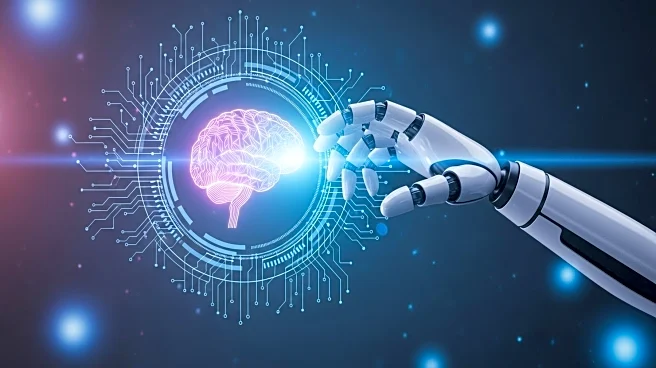What's Happening?
In the United States, the integration of artificial intelligence (AI) into business operations is leading to a significant shift in workforce dynamics, particularly affecting recent college graduates. Unemployment rates for this group have reached nearly 6%, surpassing the national average. This trend is attributed to businesses reducing new graduate hiring as they adopt AI technologies. The current approach is seen as shortsighted, potentially harming long-term business success by neglecting the development of a future-ready talent pipeline. The emphasis on AI over human talent is causing companies to lose their unique identities, becoming more like faceless entities. The challenge lies in balancing AI and human workflows, requiring a redesign of workforce strategies to ensure that human skills complement AI capabilities.
Why It's Important?
The shift towards AI-driven operations has significant implications for the U.S. labor market and business landscape. By prioritizing AI over human talent, companies risk stifling innovation and losing competitive advantage. The lack of investment in young talent could lead to a skills gap, affecting the ability of businesses to adapt to future challenges. Moreover, the trend raises concerns about the socio-economic impact on recent graduates, who face limited job opportunities. This situation calls for a strategic reevaluation of talent development, emphasizing the creation of hybrid roles where AI augments human capabilities. Companies that successfully integrate AI while nurturing human talent are likely to thrive, maintaining a balance between technological advancement and human expertise.
What's Next?
To address these challenges, businesses are encouraged to adopt a holistic approach to talent development. This includes reinventing roles to integrate AI, creating flexible career pathways, and fostering a culture of experimentation. Companies should focus on aligning employee experience with customer experience and business outcomes, ensuring that AI tools are intuitive and enhance employee performance. By developing a culture that values experimentation and clear accountability in AI-informed decisions, businesses can become attractive to top talent. This strategic shift is essential for companies to remain competitive and innovative in an AI-driven future.









